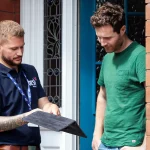Chair of UK Business Committee Pushes Social Tariff for Broadband UPDATE

The Chairman of the cross-party UK Commons Business Select Committee, Darren Jones MP (Labour), will tomorrow propose a new Private Members Bill that seeks to introduce a new low cost “social tariff” for broadband, which will be focused upon families with children on free school meals (i.e. disadvantaged groups).
Firstly, it’s important to stress that this proposal, which is backed by three former Culture secretaries (including two Conservatives), is NOT the same as the popular but highly controversial plan to nationalise broadband and give everybody free access to a “full fibre” (FTTP) connection by 2023, which was proposed as part of the Labour Party’s 2019 Manifesto (here).
By comparison the idea of offering a low-cost social tariff is nothing new in this market and indeed a few already exist. For example, BT (Basic), Virgin Media (Essential Broadband), KCOM (Flex) and VOXI (For Now) already offer special (social) tariffs that can help financially vulnerable customers to stay connected, although take-up of these remains low (BT have just extend theirs to include everyone on Universal Credit).
Advertisement
The idea is simple enough, you give vulnerable customers access to a significantly cheaper broadband package (with or without phone), albeit one that won’t be as fast or include all of the best features. For example, on BT Basic the cost of phone line rental is just £5.16 inc. VAT (includes free weekend calls to 0845/0870 numbers, a £1.50 call allowance and a £10 monthly price cap) and you can add a slow broadband service for a total cost of £10.07.
The new Private Members Bill (Ten Minute Rule Bill) will thus seek to go further by encouraging Ofcom to set a regulated social tariff, which could potentially apply industry-wide. However, only a minority of Private Members’ bills ever become law, but they do often serve a purpose by creating publicity around an issue and encouraging wider debate.
Darren Jones MP said (Twitter):
“Ministers should use the powers they already have to introduce a low-cost social tariff for broadband for families with children on free school meals”
Darren, a former lawyer for BT and consumer rights solicitor for the telecoms industry, believes that a lot of the existing COVID-19 linked promotions (e.g. free mobile data for a temporary period) from mobiles operators and ISPs are helpful, but don’t offer a long-term solution (Mirror). On the flip side it’s unclear what his views are of the existing social tariffs from BT and others, particularly where those might be going wrong.
In theory, such a tariff could indeed be introduced within the existing rules and would not necessarily require additional public funding from the Government, provided of course the wider industry could agree a self-funded way forward.
Advertisement
At the end of last year Ofcom called on providers to pro-actively promote relevant social tariffs (where available) to customers who might be eligible and “strongly encouraged” others (i.e. those that don’t yet have social tariffs) to “consider introducing them” (here).
A Government (DCMS) Spokesperson said:
“We agree digital connectivity is vital. Large providers already offer social tariffs, and we have worked with them during the pandemic to make sure people have the connectivity they need. We welcome Ofcom encouraging other providers to introduce social tariffs and will monitor the situation closely.”
Meanwhile Ofcom are currently carrying out more research into affordability and debt during 2021, which will examine whether or not broadband providers have been able to address some of the concerns. The regulator has already indicated that they may consider the introduction of an “industry-wide regulated social tariff” and thus the move by Darren Jones is clearly well-timed to feed into that debate.
On the flip side it’s worth remembering that broadband and mobile provision tends to be a business with fairly low margins, which makes it difficult for commercial operators – particularly smaller players – to permanently gift super cheap packages to lots of people without putting themselves at risk, or forcing price rises for other customers. Key questions will no doubt also be raised around issues of expected data usage and speeds.
We will update this article tomorrow once the bill has been published, although we expect the bill itself to be light on detail as it’s main focus will be to foster debate.
Advertisement
UPDATE 27th Jan 2021
We must apologise for failing to update this one, which was due to other work getting in the way. Anyway you can read what Darren wrote (here), although he didn’t give a lot of detail: “Under my proposal, every household with children eligible for free school meals—1.4 million children throughout the country—could benefit. A social tariff that costs around £10 to £15 a month for broadband would make a huge difference.”
Mark is a professional technology writer, IT consultant and computer engineer from Dorset (England), he also founded ISPreview in 1999 and enjoys analysing the latest telecoms and broadband developments. Find me on X (Twitter), Mastodon, Facebook, BlueSky, Threads.net and Linkedin.
« ISP KCOM Discounts Broadband in New Full Fibre Build Areas






















































On the face of it a good idea but your article makes mention of the low take up of already existing services offered by some isp,s I would suggest therefore as this bill looks to address a particular disadvantaged group there needs to be a check made to see if these people have the means by which to access such an offer hence the reason for the low take up of existing services perhaps?Secondly the suggestion is this is to help children with on-line learning perhaps it should only be made available during normal school hours so as to try and reduce the burden on the isp having to provide the service.
“perhaps it should only be made available during normal school hours”
There are ways to do that, but is the implication thus that outside of those hours nobody can use the same broadband connection (what about for home work)? I can’t see that idea being very popular :). A simple agreement on general tariff cost is a lot easier than trying to micro-manage access levels.
Reducing the taxes (business rates, VAT) levied on ISPs should be the first step in bringing about lower prices.
The issue is that the eligibility criteria differs, does not include all restricted low income or vulnerable, is only offered by certain providers and may result in them having to revert to lower performance technologies.
Examples:
The criteria differs and usually applies to those on certain benefits. But it may not apply for instance to those such as a State pension with no other source of income.
The user is on an Altnet but now cannot pay for their minimum “service. Currently they would probably have to revert to a DSL based service (usually BT Consumer) incurring change cost for the ISP when the users current provider’s technology is a more consistent performance and can accommodate a restricted service.
Some new builds or wireless areas are provided by only one network provider (example OFNL) and therefore if someone falls on hard times, loses their job due to illness or disability the supplying ISPs on that network provider may not provide such a “social tariff”
Therefore in my view is:
The criteria needs to be consistent and agreed
The minimum service requirement should be consistent and agreed (existing USO or other)
All ISP providers should be obligated to provide (same technology, same router, no engineering cost other than settings)
The Government should fund centrally (as part of the benefits system) and the ISP should be able to recover an agreed common cost so no one Network Provider or ISP is penalised on level or concentration of providing the “social tariff”.
Might need to consider going jobless and living off benefits